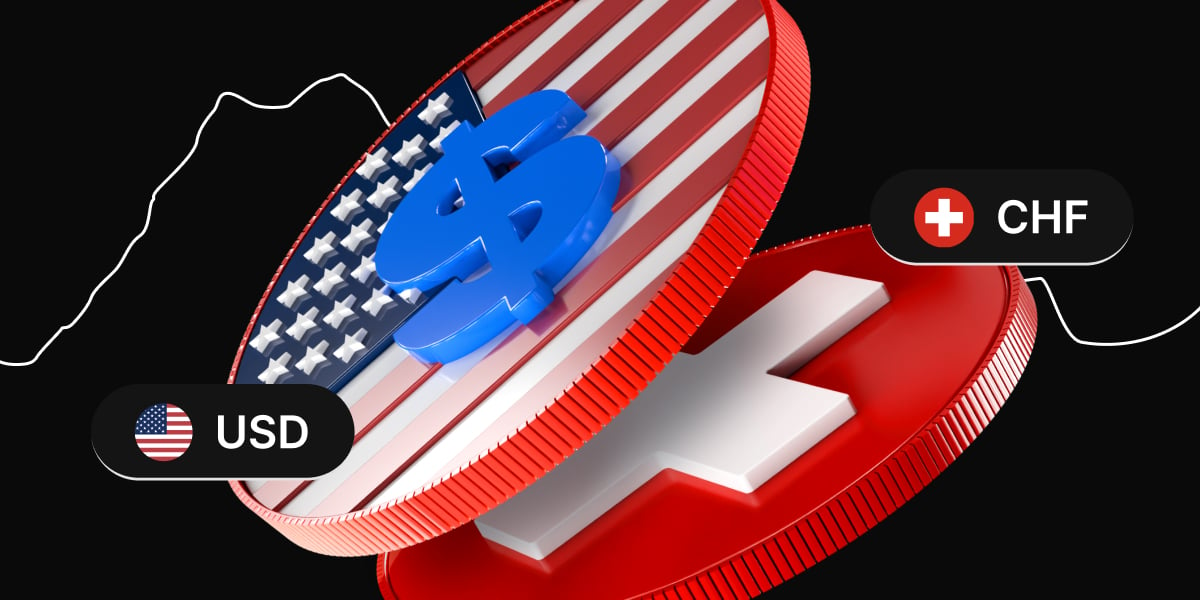In the ongoing Cryptocurrency ecosystem expansion, traders and investors alike constantly look for new ways to interact with digital assets.
And DeFi derivatives have become one of those financial instruments that earned their spot and popularity on the financial markets as demand around them constantly grows.
Despite their prominence and influence on the financial world, they are a relatively new concept. And unfortunately many still lack necessary education and knowledge about them.
Breaking down this concept into its components is the optimal approach for comprehending DeFi derivatives, their mechanics, and their importance in the Crypto markets.
What is DeFi?
Decentralized Finance (DeFi) underpins this concept. Its root purpose is to utilise the emerging blockchain technology to eliminate intermediaries and centralised institutions from financial transactions.
The significance of this model in the modern finance world is the ability of two parties to exchange, trade or execute transactions directly between each other, within a secure encrypted ecosystem, without the need to pay additional costs to institutions for processing purposes.
Derivatives in traditional finance
Derivatives have been used in traditional markets long before the emergence of DeFi, with the essential objective to hedge price risk and potential loss while operating a business.
Signing financial contracts in the form of derivatives, whose value depend on the underlying asset or a portfolio of assets, would allow the involved parties to lock prices to mitigate anticipated risks.
To execute the signed contract and trade on the secondary market, or over-the-counter (OTC), an intermediary would be required.
What are DeFi derivatives?
Alike traditional derivatives, DeFi derivatives are also for hedging price risk and gaining exposure to a particular asset, without the need to actually own it.
The core difference from traditional derivative contracts is that they are based on smart contracts hosted on the blockchain.
Smart contracts automate transactions in a transparent system, which excludes the necessity of mediators, having the protocol as the only middle-man.
Although DeFi derivatives’ values are typically tied to Cryptocurrency markets, they still track values of Commodities, fiat currencies, Stocks and many other traditional assets.
Types of DeFi derivatives
DeFi derivatives are available on the Cryptocurrency markets in various forms and are classified into different types, depending on their functionality and mechanics.

- Futures contract derivatives are by far one of the most popular DeFi protocols. The principal behind this type implies signing an agreement now, with the need to pay later. A contract bonds two parties to buy or sell an asset at a specific point in time in the future.
- Perpetual Futures contracts operate slightly differently. Their main purpose is to monitor prices of underlying assets and manage funding fees corresponding to the current market conditions.When high there is high demand, a fee is charged to those who wish to buy an asset and is subsequently paid out to those who open sell positions, this way balancing the market by having short and long sellers fund each other.
- Options are similar to Futures contracts. They allow investors and traders to buy (call options) or sell (put options) digital assets at a predetermined price (strike price) at an expiration date.
- Perpetual Options are also very similar to Perpetual Futures contracts, and do not have a predetermined exercise date.But the fundamental difference of Options is the ability of the investor to trade the underlying assets at will, than being forced to by an obligation.
- Synthetic assets are a unique form of derivatives. They embody almost any financial product and often represent tokenised versions of fiat and Cryptocurrencies, Indices, Commodities and Stocks.Investors in synthetics benefit from 24/7 trading sessions within transparent blockchain ecosystems.
How do DeFi derivatives work?
Like many others, DefI derivatives protocols are operated using automated market makers, also known as AMMs to facilitate trading operations on the market.

Contrasting centralized and decentralized exchange methods, AMMs do not use order books to match buyers and sellers to execute orders on the market, which carries additional challenges.
Nonetheless several technical solutions exist that aim to overcome such difficulties. One of these are virtual liquidity machines.
Buy supplying long and short liquidity and creating constant product, they eliminate the liquidity provider role and thus are capable to support uninterrupted trading operations by transferring the risk to the protocol.
Smart contracts and DeFi derivatives
Smart contract technology plays a vital role in the operation of DeFi derivatives. Smart contracts automate all clearing, settlement and, most importantly, trading operations. Additionally, they provide security and transparency to any operations carried out.
Smart contracts can be pre-set to execute various tasks when necessary criteria is met. For instance, an Options contract can be configured to automatically exercise price or expire once the underlying asset reaches the required value. In other words, act as self executing contracts.
Oracles
Oracles are no less important for DeFi derivatives and serve as a helping hand for proper operation of smart contracts. Smart contracts fetch external data they feed to provide precise event probabilities.
Oracles supply smart contracts with information on the prices of the underlying asset, ensuring smooth settlement for derivatives.
Risks and advantages of DeFi derivatives
Derivatives are financial products and, as any financial offering, they imply a number of benefits and opportunities along with dangers and associated risks.
Counterparty risk is one of the most widely spread dangers of DeFi derivatives. Scenarios where a party fails to fulfil the contract are common and may lead to undesired losses.
In addition to this, regulatory uncertainty around derivatives trading causes even more pressure on future development and growth of this niche.
However, securitized contracts in the form of derivatives create favourable conditions for mass adoption of these financial tools among a worldwide audience.
Moreover, their accessibility, the use of decentralised technologies and reduced costs make them even more appealing to explore.
How to get started with DeFi derivatives
The DeFi derivatives market is vast and provides many opportunities for novice and experienced investors to yield on potential profits.
When it comes to choosing the best platform to trade derivatives, one might get disoriented in the variety of platforms and exchanges available to access derivatives.
Here are some of the most popular and well-known exchanges to access decentralized finance derivatives trading:
- GMX. According to DeFiLlama, proudly holds the first place among other derivatives platforms. Ability to trade directly from in-wallet provides custody of customers assets along with access to perpetual Futures and swaps using up to 30x leverage.
- dYdX. Second largest provider with a hybrid protocol taking a role of a DEX for cross-margin perpetual trading with leverage. The ability to repurpose available balance to provide liquidity for existing trades makes it an attractive platform to access derivatives.
- Keep3r. Third by scale, a network that provides native digital assets and issues it to users that provide liquidity to the network’s liquidity pool.
Conclusion
DeFi provides the ability to access underlying real world assets within a secure, fast, transparent and cost-effective blockchain technology ecosystem.
However, incomplete and uncertain stipulations and conditions when trading DeFi derivatives today can be challenging not only for novices, but even for experienced investors.
Because of this, research and in-depth analysis of existing markets and opportunities they provide remains a must to extract potential benefits when accessing various financial tools such as derivatives.
The content provided here is for informational purposes only. It is not intended as personal investment advice and does not constitute a solicitation or invitation to engage in any financial transactions, investments, or related activities. Past performance is not a reliable indicator of future results.
The financial products offered by the Company are complex and come with a high risk of losing money rapidly due to leverage. These products may not be suitable for all investors. Before engaging, you should consider whether you understand how these leveraged products work and whether you can afford the high risk of losing your money.
The Company does not accept clients from the Restricted Jurisdictions as indicated in our website/ T&C. Some services or products may not be available in your jurisdiction.
The applicable legal entity and its respective products and services depend on the client’s country of residence and the entity with which the client has established a contractual relationship during registration.




